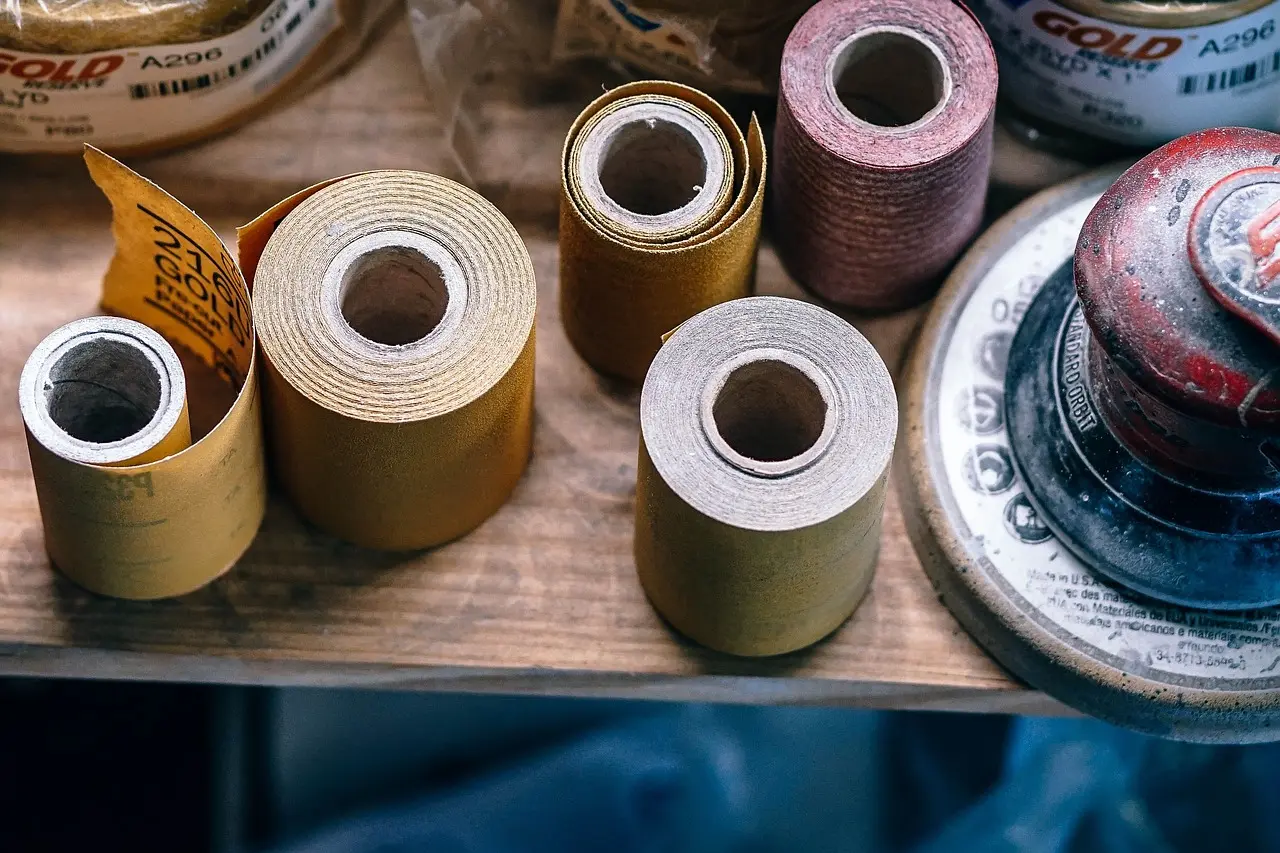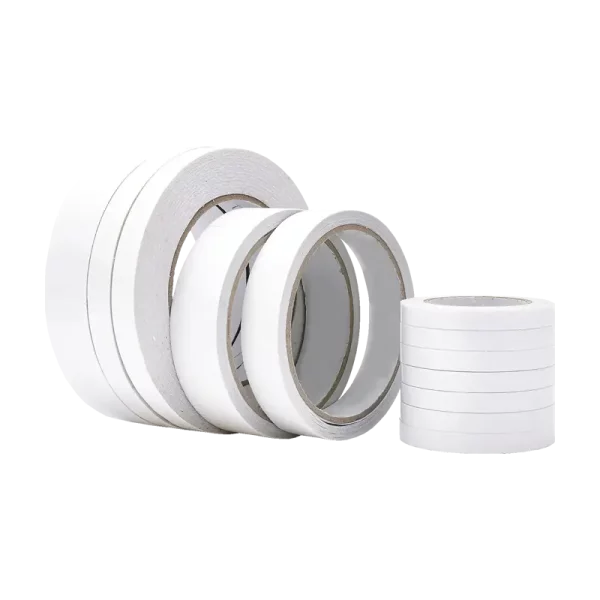
In today’s fast-paced industrial landscape, businesses demand efficiency, durability, and cost-effectiveness. Enter double-sided tapes—an unsung hero in manufacturing, construction, and engineering. Unlike traditional fasteners or liquid adhesives, these high-performance tapes offer seamless bonding solutions that streamline production, reduce downtime, and enhance product quality. From assembling automotive components to securing architectural panels, double-sided tapes are redefining industrial workflows. This guide explores their transformative role in B2B applications, providing actionable insights for procurement managers, engineers, and decision-makers aiming to optimize operations.
Why Enterprises Choose Double-Sided Tapes Over Traditional Fasteners
Double-sided tapes eliminate mechanical fastening complexities while delivering superior results:
- Cost Efficiency: Reduce labor and material costs associated with drilling, welding, or screws.
- Weight Reduction: Critical for aerospace and automotive industries aiming to improve fuel efficiency.
- Aesthetic Precision: Flawless bonding for luxury retail displays, electronics, and architectural finishes.
- Vibration Dampening: Protect sensitive equipment in manufacturing or transportation.
- Compliance: Meet industry standards for fire resistance, chemical stability, or environmental regulations.
Industrial-Grade Double-Sided Tape Types: Technical Specifications
Selecting the right tape requires understanding technical parameters:
- VHB (Very High Bond) Tapes
- Load Capacity: Up to 100 psi; replaces rivets and bolts in metal-to-metal bonding.
- Temperature Range: -40°F to 300°F (e.g., 3M™ VHB™ for HVAC systems).
- Foam Core Tapes
- Applications: Noise reduction in automotive interiors or shock absorption in machinery.
- Conductive Tapes
- Use Case: EMI/RFI shielding in electronics manufacturing.
- High-Temperature Tapes
- Performance: Withstand 400°F+ for aerospace engine components.
- Low-Surface Energy (LSE) Tapes
- Compatibility: Bond plastics like polyethylene and polypropylene without primers.
Double Sided Tape
Hot melt acrylic adhesive for bag sealing and lightweight packaging. Durable, hand-tearable, and customizable. No printing design for a clean finish.
Adhesive Acrylic
Adhesive Side Double Sided
Adhesive Type Hot Melt
Design Printing No printing
Material Tissue
Feature Waterproof
Use Bag Sealing
Click for details
Sector-Specific Applications: Solving Enterprise Challenges
Automotive & Aerospace
- Secure interior trims, emblems, and sensors without damaging lightweight composites.
- Reduce vehicle weight by replacing welded joints with VHB tapes (e.g., Tesla’s panel bonding).
Construction & Architecture
- Install curtain walls, insulated panels, and signage with weather-resistant acrylic tapes.
- Speed up projects by 30% compared to mechanical fasteners.
Electronics & Appliances
- Bond touchscreens, circuit boards, and rubber gaskets with precision.
- Prevent corrosion in humid environments using moisture-resistant adhesives.
Healthcare & Medical Devices
- Assemble MRI machines, surgical tools, and wearable devices with biocompatible tapes.
Retail & Logistics
- Reinforce packaging for heavy-duty shipping; mount anti-theft tags discreetly.
Key Factors for Procurement Teams: Selecting the Right Tape
Evaluate these criteria to align with business goals:
- Adhesive Chemistry: Acrylic (UV resistance) vs. rubber (flexibility).
- Tensile Strength: Match to load requirements (e.g., structural vs. non-structural).
- Environmental Compliance: REACH, RoHS, or ISO certifications.
- Supplier Partnerships: Prioritize vendors offering bulk pricing and technical support.
- ROI Analysis: Calculate long-term savings from reduced labor and maintenance.
Best Practices for Industrial Tape Implementation
Maximize ROI with these strategies:
- Surface Preparation: Use industrial-grade cleaners to remove oils and debris.
- Automated Application: Integrate tape dispensers into assembly lines for consistency.
- Stress Testing: Validate performance under extreme temperatures, humidity, or pressure.
- Training Programs: Educate teams on proper storage, handling, and application techniques.
Cutting-Edge Innovations Driving Industry 4.0
Stay ahead with these advancements:
- Smart Tapes: Embedded sensors monitor structural integrity in real time.
- Sustainable Adhesives: Bio-based tapes support ESG goals (e.g., Henkel’s Loctite® ECO).
- Thinner, Stronger Formulations: Nanotechnology-enabled tapes for micro-electronics.
- Custom Die-Cutting: Pre-cut shapes for automated manufacturing processes.
Case Study: Automotive Manufacturing Efficiency Boost
A leading EV manufacturer replaced 20% of welded joints with VHB tapes, achieving:
- 20% Faster Assembly: Eliminated welding and grinding steps.
- 15% Weight Reduction: Improved battery range per charge.
- Zero Corrosion: Enhanced product longevity in harsh climates.
Safe Removal & Compliance in Industrial Settings
Ensure safety and sustainability during tape replacement:
- Heat Guns: Soften adhesive for easy removal of heavy-duty tapes.
- Solvent-Free Cleaners: Meet OSHA standards with eco-friendly removers.
- Recycling Programs: Partner with suppliers to dispose of tape liners responsibly.
Conclusion: Double-Sided Tapes as a Strategic Asset
For enterprises, double-sided tapes are more than adhesives—they’re a competitive advantage. By minimizing production bottlenecks, enhancing product durability, and supporting sustainability initiatives, these solutions align with modern industrial priorities. As technology evolves, forward-thinking businesses will leverage advanced tapes to innovate faster, cut costs, and meet ever-changing market demands.

Products
Rich variety of adhesive tape

